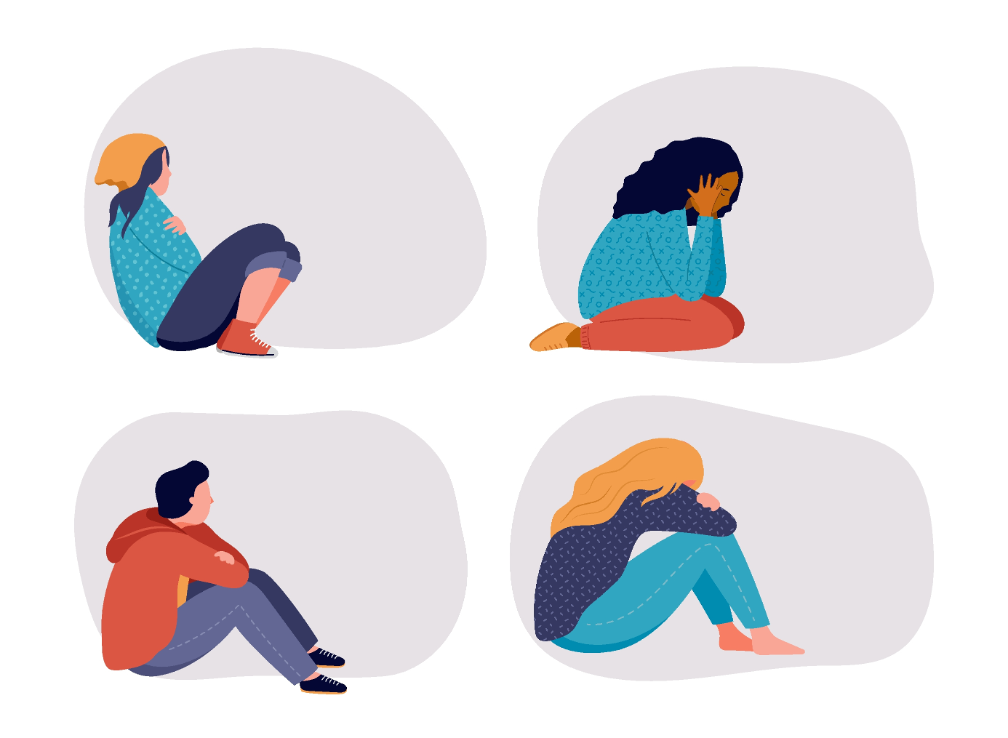In a 2021 study titled “Mental Health, Suicidality, and Connectedness Among High School Students During the COVID-19 Pandemic — Adolescent Behaviors and Experiences Survey,” The Centers for Disease Control and Prevention (CDC) released some concerning numbers. Its study found that the percentage of high school students feeling sad or hopeless increased from 26% in 2009 to 44% in 2021.
The study surveyed around 8,000 high school students and showed mental health disparities across different groups. More than one in four girls contemplated suicide during the COVID-19 pandemic — twice as many as the boys. This trend seems to be affecting teens everywhere, no matter who they are or where they are from.
Are you interested in learning more about this trend and the factors that could be playing a role? These mental healthcare providers in Northwest Indiana take a closer look.
Why are American teens affected by this wave of sadness?
You might think it’s just teens being teens, but the reality is much worse than that. Keep in mind that our teens are not only dealing with mood swings – they are sometimes facing severe mental health challenges, including eating disorders and self-harming behaviors.
It’s easy to blame it all on COVID-19, but these challenges have existed for much longer than the pandemic. Most would agree that the pandemic did not help the situation, but it also did not start it. So, what’s making our teens sad? Here are four potential reasons:
Social media use is a double-edged sword for teens
Since social media became ubiquitous (remember that the U.S. is home to over 302 million social media users at a social networking penetration rate of over 91%), we also have seen a parallel rise in teen depression. We are not saying social media is all bad, but it’s also not all good. It often tricks teens into feeling connected to the world around them, when in some cases it could be pushing them away from real-life interactions. Social media has been shown to be especially impactful on teen girls, who sometimes get stuck in a culture of comparison and competition.
Less in-person social interaction
In the ’90s and early 2000s, American teens were frequently out and about with their friends. Now, these in-person social interactions have largely been replaced by screen time. In-person interactions are essential for learning (and improving) social skills, but that’s not happening quite as often these days.
Global stressors
The teenage years often are a time when kids start to take notice of what’s going on in the world around them. Today, they are growing up in a timeline where things like climate change, political instability and economic uncertainty are realities that weigh on their young minds. As many mental healthcare providers in Northwest Indiana have seen firsthand, this exposure to negative news can take a toll on a teen’s mental health.
Parenting style can cause teenage depression
Being a parent has never been easy, but modern parenting strategies might be adding to the challenges. Even well-meaning parents might not realize that they are unknowingly passing their own fears and anxieties onto their kids. This overprotective parenting style (characterized by being overly cautious over what the kids do and controlling every aspect of their lives) can make it difficult for the teen to handle demanding situations independently.
Looking for an Affordable Mental Healthcare Provider in Northwest Indiana?
Is your child struggling with sadness, depression or other mental-health related issues? If so, and you’re looking for an affordable mental health care provider in Northwest Indiana who can help guide your child through these rough times, 219 Health Network is the place to visit. We have a team of licensed professionals on staff who can provide the specialized care and support your child needs. Contact us today at 833-219-0001 to get started.


